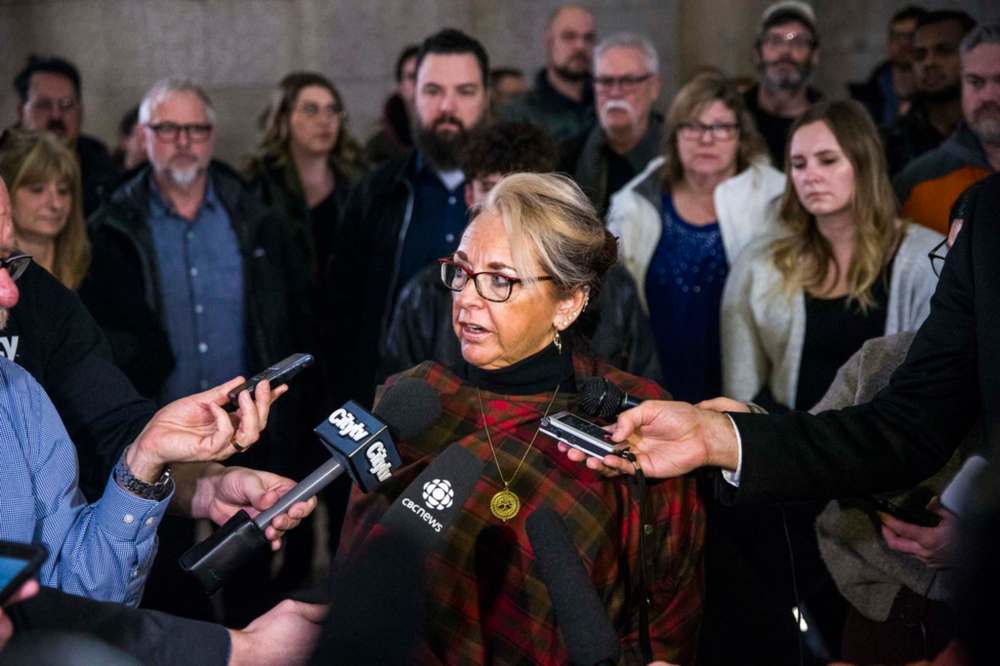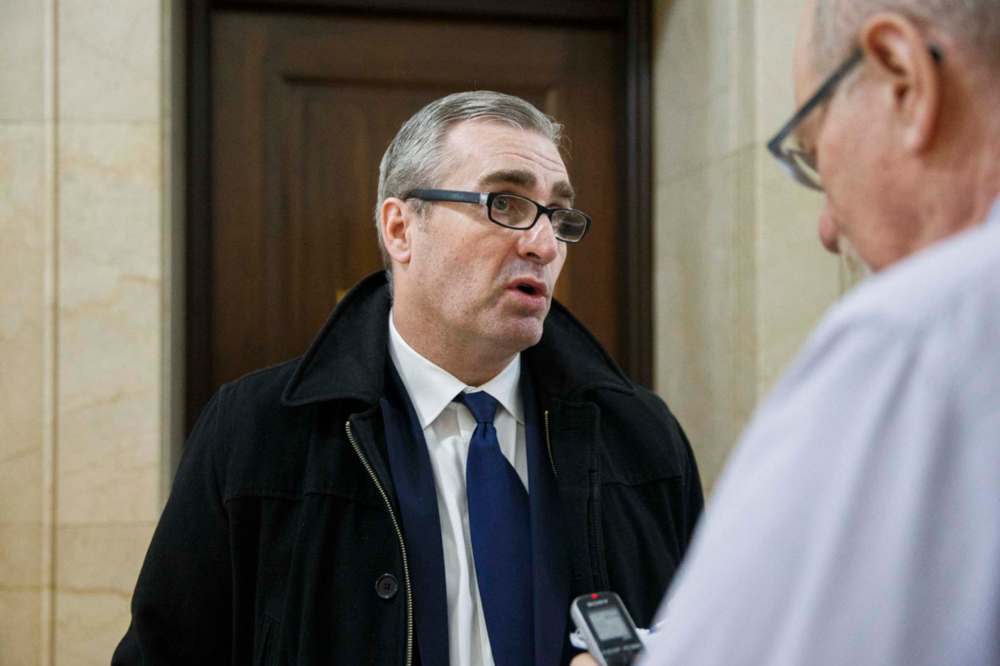Union, business leaders agree: Province needs to use more rainy day funds
Advertisement
Read this article for free:
or
Already have an account? Log in here »
To continue reading, please subscribe:
Monthly Digital Subscription
$0 for the first 4 weeks*
- Enjoy unlimited reading on winnipegfreepress.com
- Read the E-Edition, our digital replica newspaper
- Access News Break, our award-winning app
- Play interactive puzzles
*No charge for 4 weeks then price increases to the regular rate of $19.00 plus GST every four weeks. Offer available to new and qualified returning subscribers only. Cancel any time.
Monthly Digital Subscription
$4.75/week*
- Enjoy unlimited reading on winnipegfreepress.com
- Read the E-Edition, our digital replica newspaper
- Access News Break, our award-winning app
- Play interactive puzzles
*Billed as $19 plus GST every four weeks. Cancel any time.
To continue reading, please subscribe:
Add Free Press access to your Brandon Sun subscription for only an additional
$1 for the first 4 weeks*
*Your next subscription payment will increase by $1.00 and you will be charged $16.99 plus GST for four weeks. After four weeks, your payment will increase to $23.99 plus GST every four weeks.
Read unlimited articles for free today:
or
Already have an account? Log in here »
Hey there, time traveller!
This article was published 19/03/2020 (2097 days ago), so information in it may no longer be current.
Manitoba union and business leaders disagreed over many points in Thursday’s budget, but agreed the province should tap further into its rainy day fund to deal with the novel coronavirus pandemic.
“It’s more than raining; it’s pouring,” said Michelle Gawronsky, head of the Manitoba Government and General Employees’ Union. “To weather the storm, we need that money put into helping Manitobans. We need it now.”
MGEU and other labour groups were distressed at the provincial cutbacks business leaders were hailing. Yet, even industry types warned the provincial Tory government will probably have to lean further into spending.

Chuck Davidson, head of the Manitoba Chambers of Commerce, said measures such as cutting down the deficit makes the province more competitive, as does decreasing the payroll tax.
“This government has set out a path of getting its fiscal house in order, and making some key investments that will put more money into the pocket of businesses,” Davidson said.
He supported putting more money into the rainy day fund, but figured it would soon have to be tapped to get cash to businesses to complement federal measures for workers. “There’s a short-term need that is extremely urgent,” he said.
Meanwhile, the Manitoba Federation of Labour decried moves to get the private sector involved in public housing.
“This isn’t a time for any government to be looking at cuts,” said MFL president Kevin Rebeck. “People are looking for governments to be a leader and provide stability.”
MGEU said Manitoba should top-up the federal measures set to be tabled in Parliament, which will have Ottawa provide cash through Employment Insurance, as well as to workers who don’t qualify for EI.
The MFL wants Manitoba to give paid leave of 14 working days to everyone, to ensure a safe quarantine. That could be staggered so essential workers still staff positions.
“There’s going to be gaps, and people aren’t going to be getting their full pay,” Rebeck said.
Bram Strain, of the Manitoba Business Council, argued the budget could yield more cost-effective services through public-private partnerships. He said a move to invest in highways will help trade, especially with unused funding being rolled into the next year.
“If there was no COVID-19, I think it would be a fairly positive budget for business,” Strain said.

However, because of the impact of the novel coronavirus, businesses need low-interest loans, wage subsidies or direct grants, and quickly, he argued. “Where we’re going to need more support is some positive, direct interventions into business.”
The Pallister government intended its marquee announcement to be the one point cut to the PST — paid for by a provincial carbon levy. Yet, the measure got a lukewarm reception Thursday.
Both labour groups felt it restrained the government from responding to COVID-19, which also had the MBC unsure if the measure is worth proceeding with. Davidson argued the PST cut makes Manitoba competitive with its neighbours.
MGEU and MFL also decried the ongoing curtailing of general health spending, as well as a decline in and public-health spending and workplace-safety expenditures, which were kept in place in Thursday’s COVID-19 update.
“I don’t have a whole lot of positives on this,” Gawronsky said. “I am very worried and disappointed.”
dylan.robertson@freepress.mb.ca


